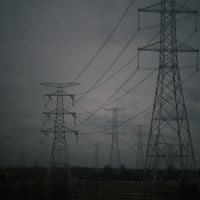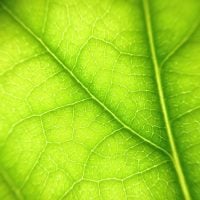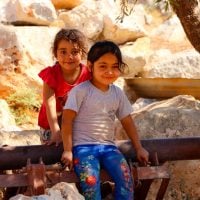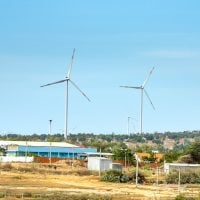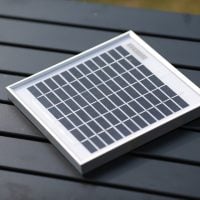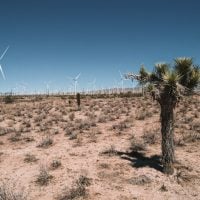Deadline: 8-Mar-23
The Northern Contaminants Program’s call for proposals is now open for new activities across all subprograms, including for the monitoring and research of plastic pollution in Northern and Arctic environments and wildlife.
The Northern Contaminants Program (NCP) engages Northerners and scientists in research and monitoring of long-range contaminants in the Canadian Arctic, that is, contaminants that are transported to the Arctic through atmospheric and oceanic processes from other parts of the world and which remain in the Arctic environment and build up in the food chain.
The data generated by the NCP is used to assess ecosystem and human health, and the findings of these assessments are used to address the safety and security of traditional country foods that are important to the health and traditional lifestyles of Northerners and northern communities. The findings also inform policy, resulting in action to eliminate contaminants from long-range sources. The NCP is committed to scientific excellence and northern engagement on the issue of long-range contaminants in the Arctic.
Objectives
The objectives of the Communications, Capacity and Outreach subprogram are to support and facilitate activities and initiatives that:
- raise awareness of contaminants in the North from long-range sources and the work that is under way to address the issue;
- help to support food choice decisions among consumers of traditional/country foods; and
- build capacity in the North to participate in and/or contribute to addressing these issues.
NCP Subprograms
The NCP meets the challenges of monitoring and research related to Arctic contaminants through five subprograms:
- Human Health
- Environmental Monitoring and Research
- Community-Based Monitoring and Research
- Communications, Capacity and Outreach
- Program Coordination and Indigenous Partnerships
Funding Information
- For this call for proposals, the Government of Canada is providing $2,665,000 is available in 2023-2024 for new projects related to human health, environmental and community-based monitoring and research, and communications of contaminant-related messages and public outreach initiatives, with over $850,000 identified for activities contributing to Canada’s Plastics Science Agenda.
-
NCP Subprograms & Annual Funding Envelopes 2023-2024
-
Human Health (HH) (Total $1,075,000 Annually)
-
Human biomonitoring and research projects:
- Support for ongoing biomonitoring and research priorities identified in the HH Blueprint: $425,000
-
Human biomonitoring and research projects:
-
Community-Based Monitoring & Research (CBM&R) (Total $430,000 Annually)
- Support for projects that address priorities in the CBM&R Blueprint: $230,000
-
Plastic pollution:
- Support for projects and activities that address plastic pollution: $130,000
-
Environmental Monitoring & Research (EMR) (Total $1,550,000 Annually)
-
Core monitoring projects:
- Support for ongoing core monitoring projects: $630,000
-
Research projects:
- Support for research projects that address priorities in the EMR Blueprint: $150,000
-
Plastic pollution:
- Support for projects and activities that address plastic pollution priorities in the EMR Blueprint: $400,000
-
Core monitoring projects:
-
Communications, Capacity & Outreach (CCO) (Total $700,000 Annually)
-
Core projects:
- Support for Regional Contaminants Committees and Inuit Research Advisors: $500,000 Includes plastic funding
-
Other/new projects (General):
- Support for projects and activities that address priorities in the CCO Blueprint: $200,000
-
Core projects:
-
Program Coordination & Indigenous Partnerships (Total $1,240,000 Annually)
-
Core projects:
- Support for projects and activities as identified in the Program Coordination & Indigenous Partnerships Blueprint (Includes $100,000 per annum plastic funding)
-
Core projects:
-
Human Health (HH) (Total $1,075,000 Annually)
Geographic focus of the NCP
- The geographic focus of the NCP is Yukon, Northwest Territories, Nunavut, Nunavik and Nunatsiavut. This includes the traditional territories of Yukon First Nations and of the Dene and Metis of the Northwest Territories, and all of Inuit Nunangat (including Inuvialuit Settlement Region).
- Proposals for work to be conducted outside these regions will be considered on a case-by-case basis according to their relevance to the various NCP Blueprints.
Changes to the 2023-2024 NCP Call for Proposals
Please note the following important changes and updates in this year’s Call for Proposals:
- Research and Monitoring of Plastic Pollution: Dedicated funds for plastic pollution monitoring and research under the Northern Contaminants Program, and related communications and outreach activities, has been secured until 2026-2027. Priorities for plastics pollution monitoring and research are outlined under the following subprograms: Environmental Monitoring and Research, Community-Based Monitoring and Research, and Communications, Capacity, and Outreach. Plastics-focused projects beginning in 2023-2024 are also eligible for multi-year funding (up to 3 years).
- Contaminants of Concern: Candidate persistent organic pollutants (POPs) nominated for addition to the Stockholm Convention on Persistent Organic Pollutants for which data are being sought include long-chain perfluorinated carboxylic acids (C9-C20), their salts and precursors; medium-chain chlorinated paraffins (MCCPs; also called medium-chain chlorinated alkanes) and chlorpyrifos. Please see Appendix A for NCP’s Contaminants of Concern.
- Environmental Monitoring and Research: Research and monitoring priorities have been updated, including those related to plastic pollution. Note that these priorities are also applicable to applicants to the Community-Based Monitoring and Research subprogram.
- Quality Assurance/Quality Control (QA/QC) Information: Applicants are asked to provide additional details to the “Laboratory Analysis” section of the proposal if the proposal involves chemical analysis. This information will ensure that new laboratories can be easily integrated, and so that existing laboratories can be confirmed, for participation in the NCP QA/QC Interlaboratory study. Participation in this study is a requirement for most projects performing chemical analyses funded by the NCP.
Eligibility Criteria
There are no restrictions on who can apply for NCP research funding. Past applicants have included but have not been limited to:
- Indigenous governments and organizations
- Academic based researchers
- Government based researchers
- Not-for-profit organizations
- Northern or Indigenous community groups or individuals
For more information, visit Call for Proposals.


